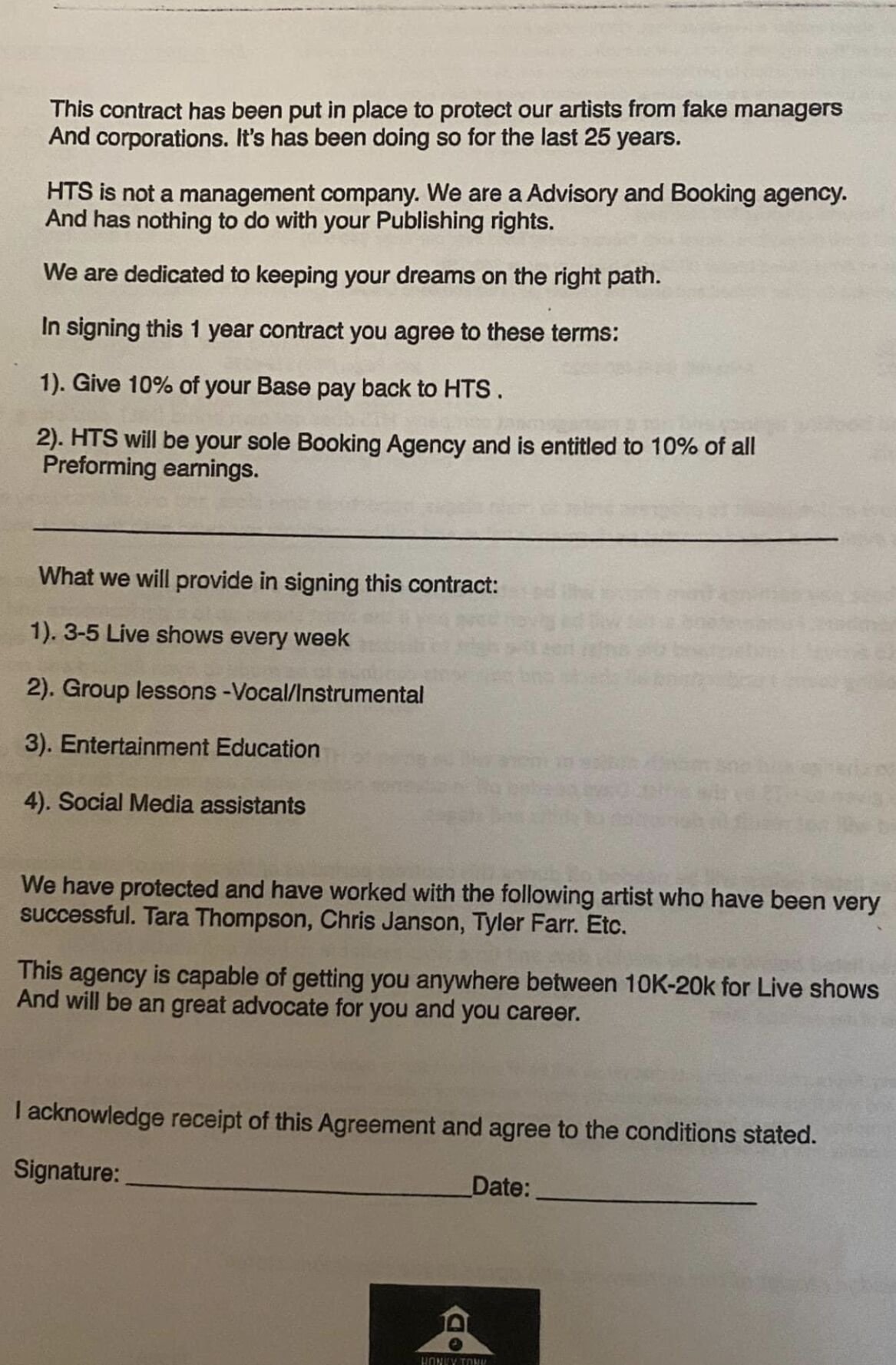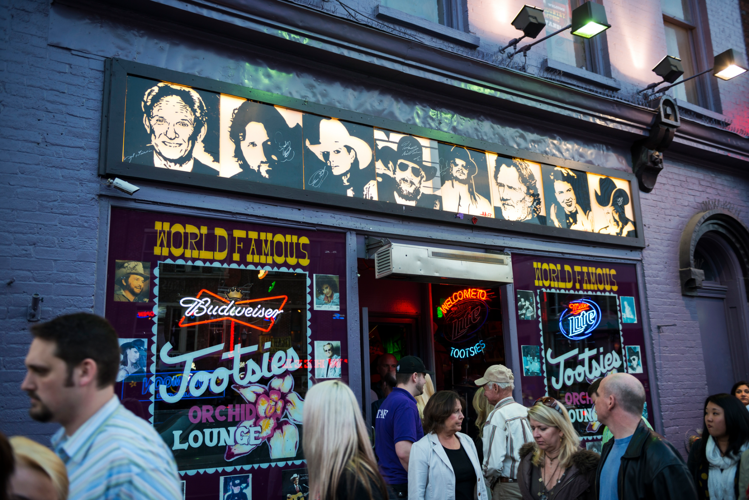
Outside Tootsie's Orchid Lounge
Musicians who play the Tootsie’s Circuit — the collection of Lower Broadway bars owned or co-owned by Steve Smith, including Tootsie’s Orchid Lounge, Kid Rock’s Big Ass Honky Tonk & Rock N’ Roll Steakhouse, Rippy’s and Honky Tonk Central — are pushing back on a new contract that they say they have been asked to sign in the past month.

Photo of the Tootsie's contract shared with the Scene
The one-page contract, which they say comes from an organization called Honky Tonk School, requires artists to pay 10 percent of their Tootsie’s Circuit base pay to Honky Tonk School, as well as 10 percent of all other performing earnings. In exchange, they’re supposed to get booked for three to five weekly shows at the bars, plus social media support, ongoing vocal lessons and more. Honky Tonk School is a project started by Scott Collier and Smith’s brother John Taylor to develop and mentor up-and-coming artists and book them at company bars.
The contract, which has a number of typos and confusing grammar choices, had been rumored for several months. Its impending arrival caused concern for musicians who were unclear on what would be required of them and how they would pay the additional expense, says Sasha McVeigh, an advocate for downtown musicians, administrator of an industry Facebook group, and a musician who used to play on the Tootsie’s Circuit and now plays elsewhere.
Artists on the Tootsie’s Circuit receive base pay that, they say, runs between $200 and $400, based on the time of day and the stage they play. That pay is divided between members of the band, as are tips, which can be substantial on weekend nights. By comparison, musicians report that other Broadway venues pay $100 to $200 or more per person — not per band — for a four-hour shift. However, they say tips at those spots tend to be lower because there is less passing of the hat (or bucket) for tips.
Musicians report they are paid by check the night of the performance, which they then cash in at the bar and divide among band members. The 10 percent of base pay is then submitted via Venmo. A look at the Honky Tonk School Nashville Venmo account shows a number of artists regularly submitting 10 percent after their shows.
Some players, who spoke to the Scene on the condition of anonymity, say that they were told the contract had been “dissolved” this week, just days after it was posted in an industry Facebook group and on Reddit. They were not provided with written confirmation of dissolution, an alternative contract, details on future 10-percent payments, or refunds of the payments already rendered. Some were told that the 10 percent only applied to artists with less than two years’ tenure playing on the Tootsie’s Circuit; others were told it only applied to bigger-name acts. Others had not heard that the contract has been “dissolved.”
Neither Collier nor Taylor was available for interviews with the Scene.
“We've trained them from A to Z,” Taylor told The Tennessean in a July story about music on Lower Broadway. “We tell them which songs to sing, what to do, and how to do it.”
Artists are concerned about their ability to make a living. They report that, despite being independent contractors rather than employees, they have been prohibited from playing at other venues that compete with the Tootsie’s Circuit. One artist quit his other jobs after signing the contract, with the understanding that his band would have five to six shows per week on the Tootsie’s Circuit. He says he’s only been scheduled for two per week, and is wondering how to make ends meet since he cannot play other venues. He is considering not paying the 10 percent fee this week while he sees how things shake out. Other musicians are contributing 10 percent of their income from shows played elsewhere to Honky Tonk School.
McVeigh says the contract is unreasonable and the burden on the musicians too high — particularly as the high caliber of musicians is what made Lower Broad a tourist destination. McVeigh has helped negotiate discounted downtown parking rates for musicians who are carrying instruments to the honky-tonks as one way to help reduce expenses for those playing these gigs.
“I have credited Tootsie’s with helping me get my foot in the door,” says McVeigh. “I have mad respect for the brand. But it doesn’t need to be run like this.”






